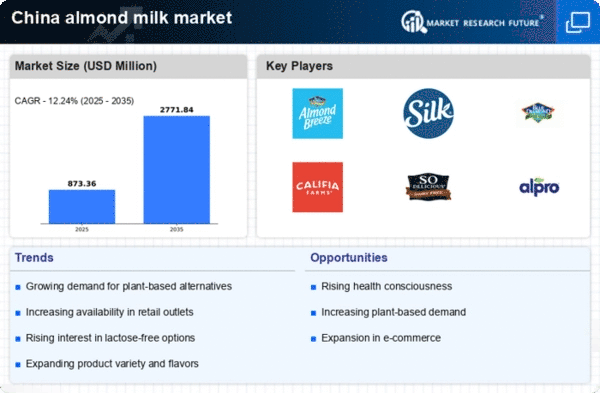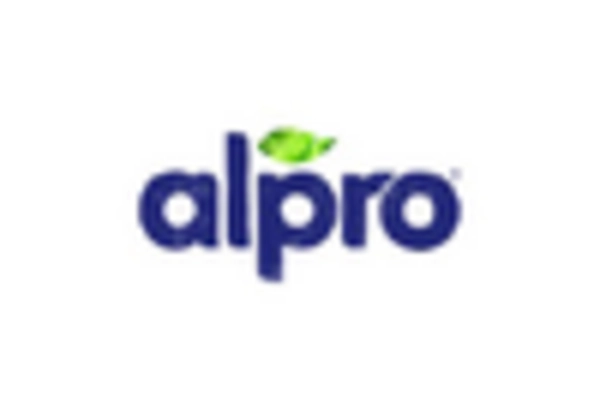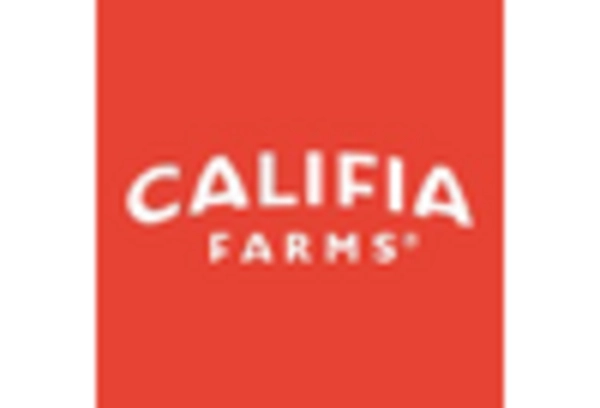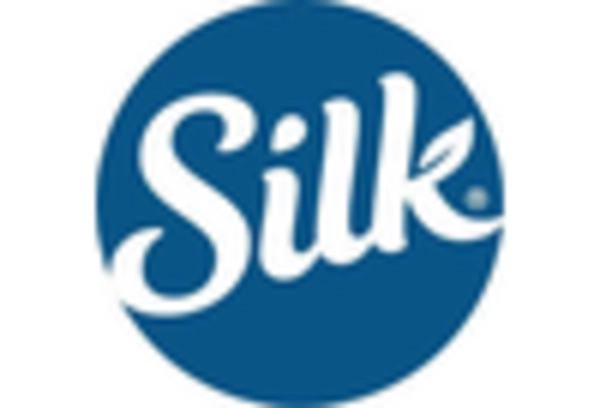Innovative Marketing Strategies
The almond milk market in China is benefiting from innovative marketing strategies that resonate with the target audience. Brands are increasingly utilizing social media platforms and influencer partnerships to promote almond milk as a trendy and healthful beverage choice. These marketing efforts often highlight the versatility of almond milk in various culinary applications, appealing to a broader demographic. Recent surveys indicate that approximately 40% of consumers are influenced by social media when making beverage choices. The almond milk market is likely to see enhanced brand visibility and consumer interest as these marketing strategies evolve, potentially leading to increased sales and market growth.
Expansion of Distribution Channels
The almond milk market in China is witnessing an expansion of distribution channels, which plays a crucial role in enhancing product accessibility. Retailers are increasingly stocking almond milk products in supermarkets, health food stores, and online platforms, catering to the growing consumer base. This diversification in distribution not only increases visibility but also facilitates consumer access to a variety of almond milk brands and flavors. Recent statistics suggest that online sales of almond milk have surged, accounting for approximately 30% of total sales in the market. The almond milk market is thus likely to see continued growth as distribution networks expand, making it easier for consumers to purchase almond milk products.
Rising Demand for Dairy Alternatives
The almond milk market in China experiences a notable surge in demand for dairy alternatives, driven by a growing population of health-conscious consumers. As individuals increasingly seek plant-based options, almond milk emerges as a preferred choice due to its perceived health benefits. Recent data indicates that the market for dairy alternatives in China is projected to grow at a CAGR of approximately 15% over the next five years. This trend reflects a shift in consumer preferences towards non-dairy beverages, with almond milk being a significant contributor to this growth. The almond milk market is thus positioned to capitalize on this rising demand, as more consumers opt for lactose-free and lower-calorie alternatives to traditional dairy products.
Influence of Vegan and Vegetarian Trends
The almond milk market in China is significantly impacted by the rising trends of veganism and vegetarianism. As more individuals adopt plant-based diets for ethical, environmental, or health reasons, the demand for almond milk continues to grow. This shift in dietary preferences is reflected in market data, which indicates that the plant-based milk segment is expected to capture a larger share of the beverage market in the coming years. The almond milk market stands to gain from this trend, as it aligns with the values of consumers seeking sustainable and cruelty-free alternatives to dairy products. This alignment may lead to increased brand loyalty and consumer engagement.
Increased Awareness of Nutritional Benefits
The almond milk market in China is significantly influenced by heightened awareness regarding the nutritional benefits associated with almond milk consumption. Consumers are increasingly informed about the advantages of almond milk, such as its low calorie content and high vitamin E levels. This awareness is further supported by various health campaigns and educational initiatives promoting plant-based diets. As a result, almond milk is perceived as a healthier alternative to cow's milk, leading to increased sales and market penetration. The almond milk market is likely to benefit from this trend, as more consumers incorporate almond milk into their daily diets, potentially increasing market share and revenue.
















